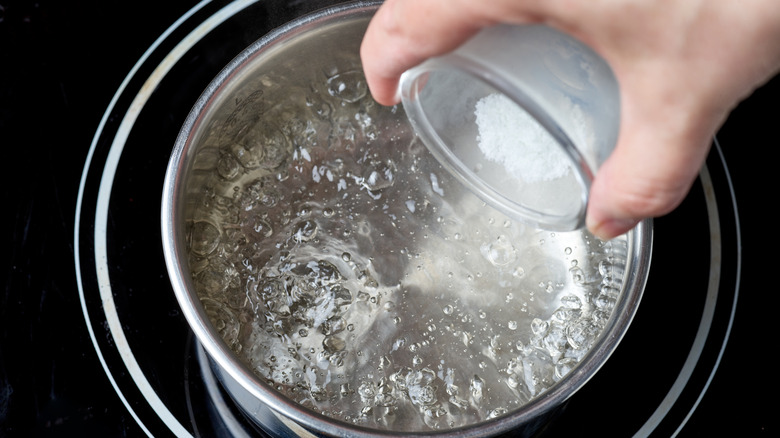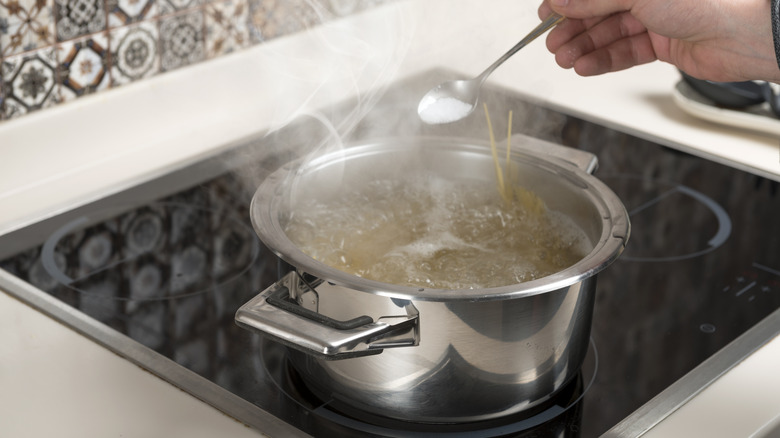The Optical Illusion Behind Salting Boiling Water
Salt has been used to flavor food for thousands of years, and its ability to cure meat paved the way for significant advances in the culinary arts. Salt is so important in our history, in fact, that it sometimes gets credit for things it doesn't actually do. You know, like playing a role in how fast water boils.
This misconception comes from what is effectively an optical illusion. When salt is added to heated water, bubbles appear, but this isn't because salt helps to expedite the boiling process. That's an old wives' tale, notes The Washington Post. In truth, given a large enough pot of water, salt would actually slow boiling since its addition increases the boiling point.
So why do those telltale bubbles accompany the introduction of salt? According to author J. Kenji López-Alt, who tackled the subject in his 2015 book "The Food Lab: Better Home Cooking Through Science," those bubbles aren't necessarily caused by water turning into vapor — they can also pop up in spaces like scratch marks. The addition of salt is a good example since adding it to hot water creates new openings for bubbles to take shape.
The real effects of adding salt to boiling water
That doesn't mean you should stop salting boiling water, however. There are other ways in which this practice can be beneficial. Timing is important, however. When salting pasta water, for instance — an action always encouraged in order to increase the pasta's flavor — one should do so only after the water has reached its boiling point. There are two reasons for this: the first is that the boiling water more quickly dissolves the salt, so that its flavor may be absorbed evenly into your pasta noodles; second, it helps protect cookware, especially that of the stainless steel variety.
As for salt's preservative qualities relative to cookware, it must be noted that this is a double-edged sword. Salt can pit and otherwise corrode your pots and pans. It can also help prevent this from happening. The trick, again, is waiting until the water is already aboil. If you add salt for flavor before this boiling point is reached, it will sink to the bottom, contributing to corrosion. But if you wait, the salt will simply dissolve. Delaying salting until after the water is boiling shouldn't be a big deal in either case since, as was pointed out earlier, its alleged ability to bring water to a boil faster has been debunked by science.

